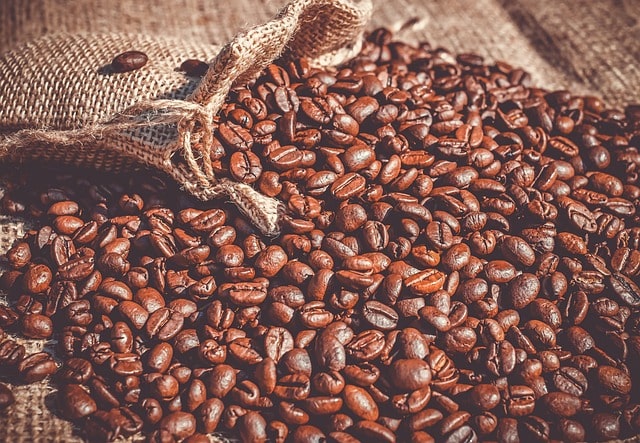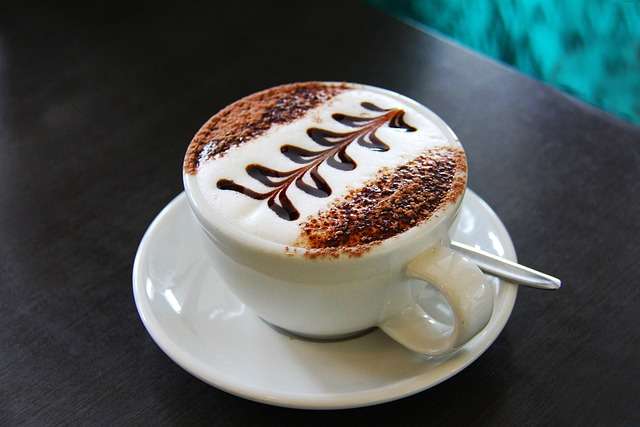Best black coffee
“Coffee is a language in itself.” This quote from Jackie Chan encapsulates the global fascination with the rich, dark, and alluring character that is black coffee. It’s more than a beverage; for many, it’s a beloved morning ritual, a lively social catalyst, and the indispensable lifeblood of productivity. The history of coffee is as rich as the drink itself, and as varied as the regions it originates from.

Origins
The saga of coffee began centuries ago with its discovery in Ethiopia. Shepherds noticed their goats displaying increased energy after consuming the coffee berries. The tales of coffee’s invigorating effects traveled far and wide, reaching the Middle East, Europe, the Americas, and beyond. Coffee has become embedded in the cultural tapestry of numerous societies, each region adding its unique tradition and preparation style.
“The powers of a man’s mind are directly proportioned to the quantity of coffee he drinks.” — Sir James Mackintosh
The Art of Brewing
Crafting black coffee is as much an art as it is a science. Brewing, in essence, is about extracting the solubles from the coffee grounds – the alchemy that turns raw, green beans into a steaming cup of aromatic delight. Each brewing method carries its distinctive character, shaping the body, flavor, aroma, and acidity of the coffee, forming an integral part of the coffee experience.
From the traditional French press to the modern cold brew, the intense espresso to the delicate pour-over, each brewing method yields a unique flavor profile and mouthfeel.

The French press, a classic brewing method, yields a rich, full-bodied cup of coffee with a robust mouthfeel, preserving the natural oils and flavors of the coffee beans. In contrast, the pour-over method results in a cleaner cup, accentuating the bright acidity and complex flavors, rendering an intricate and nuanced brew.
Cold brew
is a refreshing deviation from the typical hot brewing methods. By steeping coffee grounds in cold water for an extended period, typically 12-24 hours, the result is a smooth, sweet, and full-bodied coffee with low acidity and a chocolatey undertone.
Espresso
the heart of many coffee beverages, is produced by forcing hot, pressurized water through finely ground coffee. It results in a concentrated shot of coffee topped with a layer of ‘crema’ – a testament to its quality. Espresso is the backbone of lattes, cappuccinos, and other beloved coffee beverages but is also enjoyed on its own, highlighting the intense flavors and aroma of the coffee beans.
Aeropress
Then there’s the Aeropress, a newer entry to the coffee world but one that has gained a cult following. Its unique brewing mechanism combines immersion and pressure, allowing for a brew time significantly shorter than other methods. The result is a smooth, flavorful brew with low bitterness.
The choice of brewing method often depends on personal preference, availability of equipment, and the time one is willing to invest in the process. Each brewing method adds character to every cup, allowing us to explore the multifaceted world of coffee from the comfort of our homes. The adventure in brewing black coffee lies in this endless exploration, the pursuit of the perfect cup, and the joy of savoring the fruits of one’s labor.
Types of Beans and Roasts for Black Coffee
The choice of beans significantly determines the character of black coffee. Arabica and Robusta, the two primary types of coffee beans, vary in taste, caffeine content, and price. Each type of bean offers different flavor profiles depending on the roast level.

Volcanica Ethiopian Yirgacheffe Coffee, a medium roast coffee known for its fruity and floral notes, is often recommended for black coffee. Stumptown Holler Mountain Organic Whole Bean Coffee is another top choice, recognized for its smooth, chocolatey flavor.
Beyond the type of beans, the roast profile, origin, and freshness significantly influence the flavor of coffee. These factors and more contribute to the diversity of flavors experienced in every cup of black coffee.
Health Aspects
The health benefits of black coffee are many, including boosting physical performance and mental alertness, and potentially lowering the risk of certain diseases. In fact, black coffee has also been found to be beneficial for skin health. However, moderation is key, as excessive consumption could lead to health issues such as insomnia and increased heart rate.

Cultural Influence
Black coffee holds a significant place in many cultures, both as a beverage and a social catalyst, highlighting the unique traditions and practices around the world.
Arab Cultures
In certain Arab cultures, serving coffee is more than a mere act of hospitality. It’s a ceremony, an offering to guests as a sign of warm welcome. The coffee, often flavored with spices like cardamom, is brewed in a traditional coffee pot known as ‘dallah’ and served in small cups. This ceremony is an integral part of their social and cultural life, signifying respect and friendship.
Italy
Italy is renowned for its espresso culture. Here, coffee isn’t just a drink; it’s a way of life. A quick espresso at the counter is a morning staple, an afternoon delight, and an excuse for a quick break from work. Italians believe in savoring their espresso in small sips, standing at the bar, often engaging in lively conversations with fellow patrons. The ‘espresso break’ is a cherished Italian tradition, reflecting their love for good coffee and good company.
America
In America, black coffee is an everyday pick-me-up, fueling the daily grind at work and at home. American coffee culture is as diverse as the country itself, with regional variations in brewing methods and coffee consumption. From the robust drip coffee to the trendy cold brew, black coffee is an integral part of American life. Many Americans start their day with a cup of black coffee, often enjoyed in travel mugs during the morning commute. The concept of ‘coffee breaks’ during work hours has been a long-standing tradition in American workplaces, fostering camaraderie and promoting relaxation.
Ethiopia
Ethiopia, often considered the birthplace of coffee, has a rich coffee culture. The traditional Ethiopian coffee ceremony is a unique cultural practice involving the careful roasting, grinding, and brewing of coffee, followed by three rounds of serving. The ceremony is a social event, symbolizing respect and friendship.
Sweden
The Swedish concept of ‘fika’, a coffee break that’s more about socializing than drinking coffee, has become a defining feature of Swedish culture. It’s about pausing to appreciate the good things in life, often accompanied by sweet pastries.
Turkey
In Turkey, coffee holds a special place. Turkish coffee, brewed in a unique pot called ‘cezve’, is an integral part of Turkish hospitality and is often served during social occasions. The coffee, thick and frothy, is savored slowly, often accompanied by a glass of water and Turkish delight.
The journey of black coffee from a humble berry to a global cultural phenomenon is a testament to its captivating allure. Coffee transcends geographical boundaries, creating a shared experience that brings people together, fostering a sense of global community.
Sustainability and Ethics
With coffee being the second most traded commodity in the world, it has an enormous environmental and social impact. As consumers are becoming more aware of the impact of their choices, trends are shifting towards sustainable farming practices, ethical sourcing, and fair-trade policies. Today’s coffee connoisseurs not only seek quality but also a sense of connection with the communities that cultivate their favorite beans.
Conclusion
In conclusion, the black coffee world is rich, vibrant, and incredibly diverse. As coffee lovers, we’re fortunate to be able to explore this diversity and find our favorite ways to enjoy this beloved brew. So, how do you enjoy your perfect cup of black coffee?
From the rich, aromatic Ethiopian Yirgacheffe to the robust, full-bodied Robusta beans, from the traditional Italian espresso to the popular American drip, black coffee offers an immersive experience that reaches beyond taste, connecting us to different cultures, traditions, and people worldwide.
Check out also our article about How to make good coffee at home with machine







